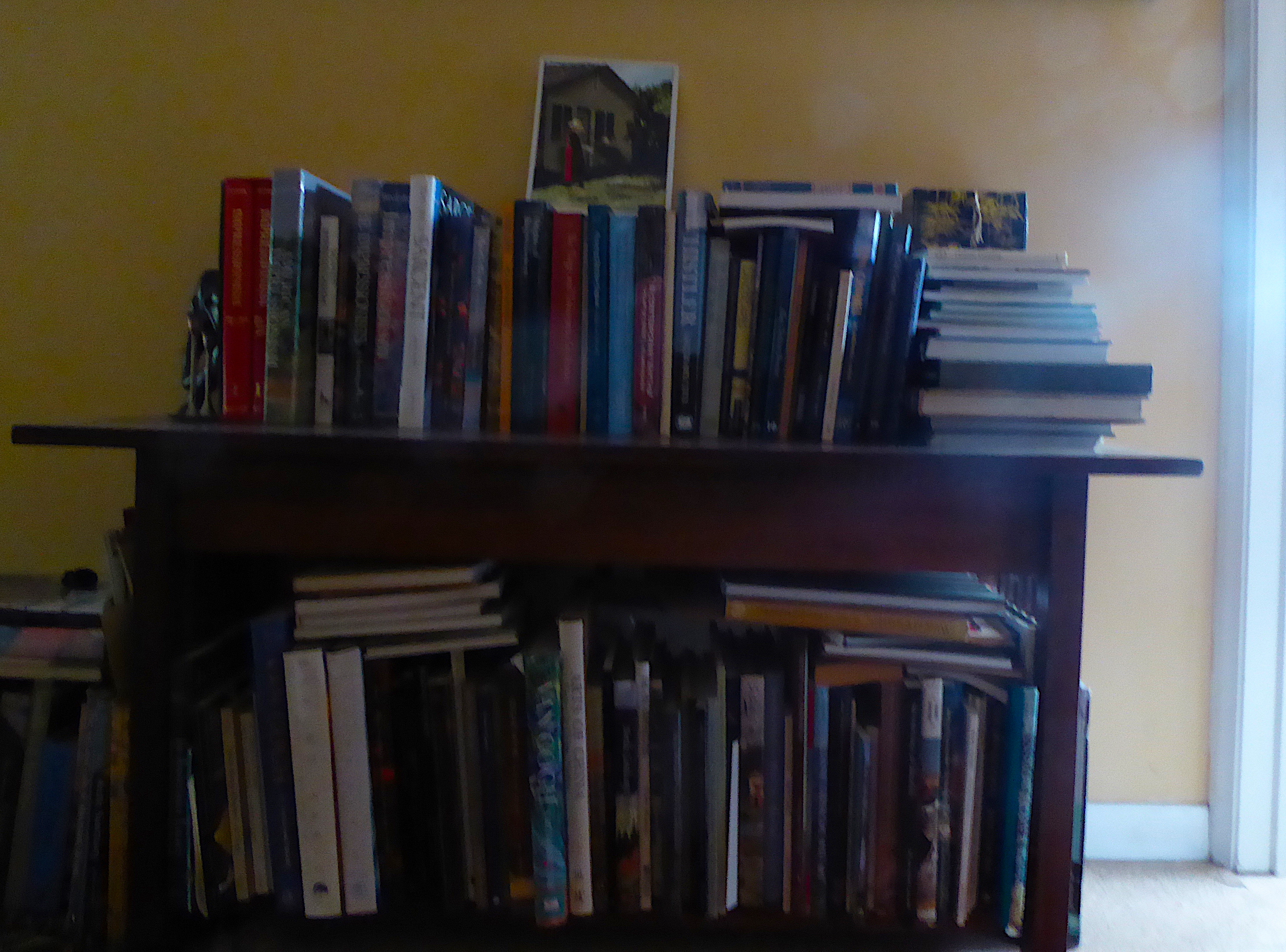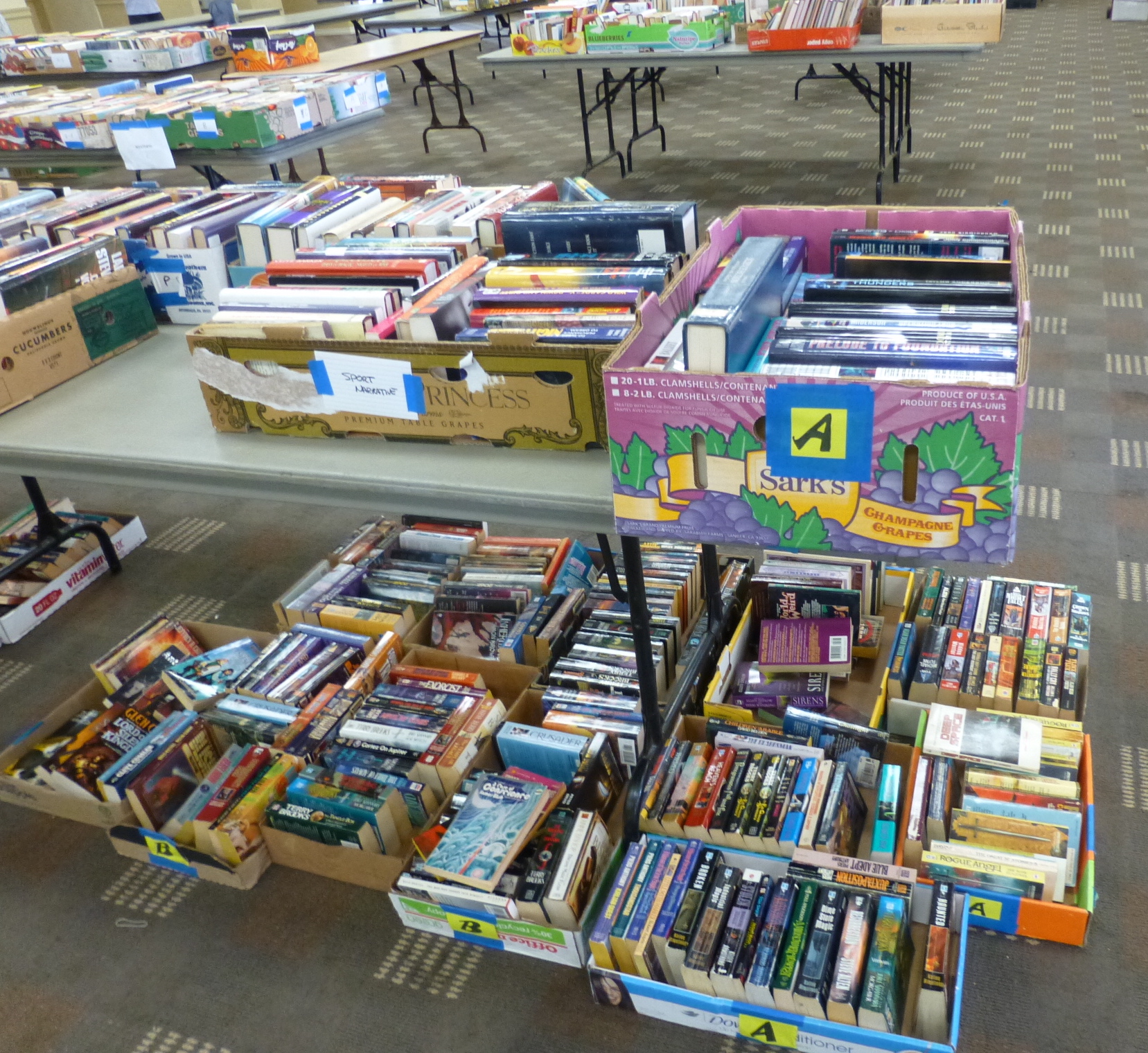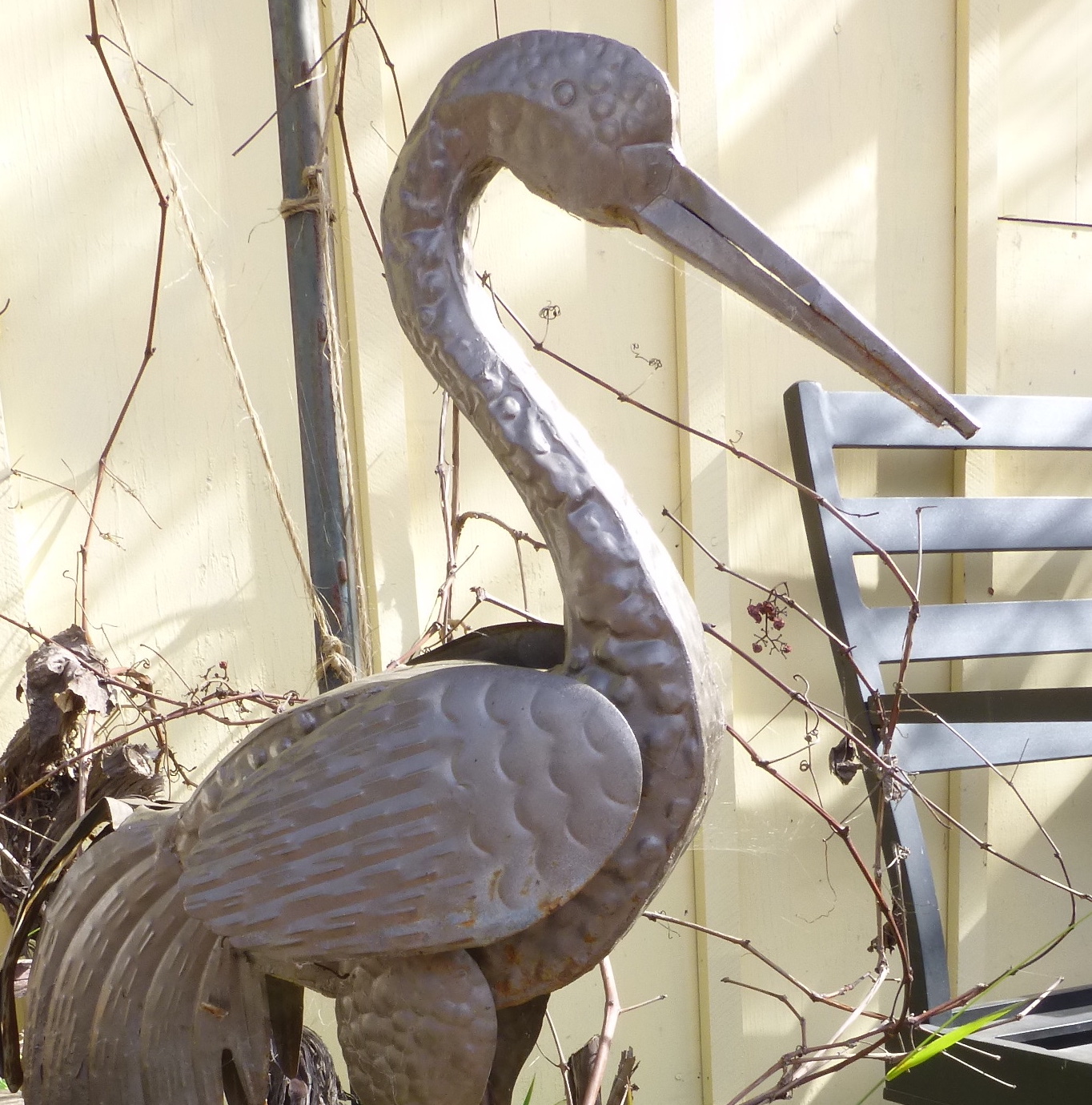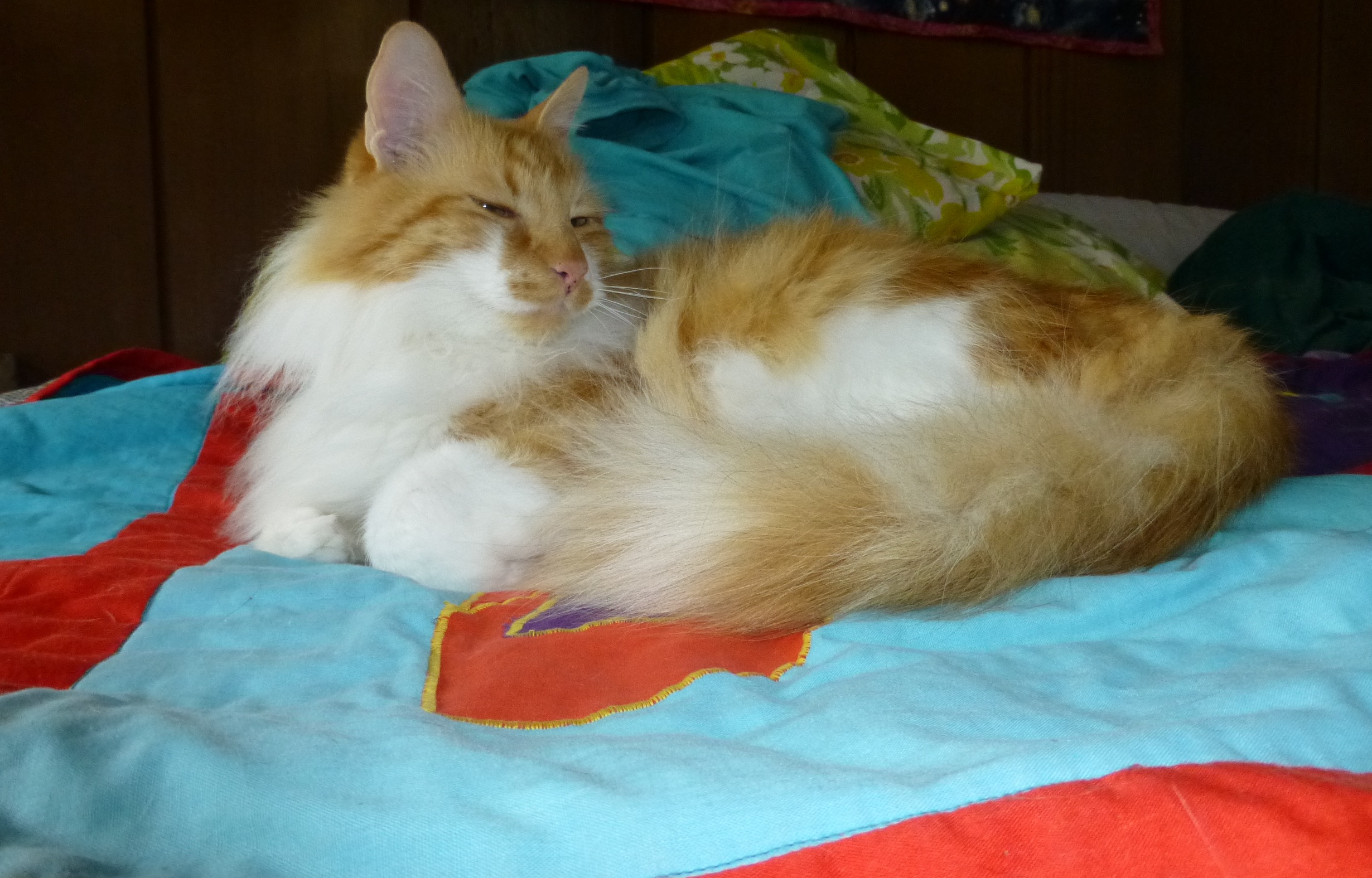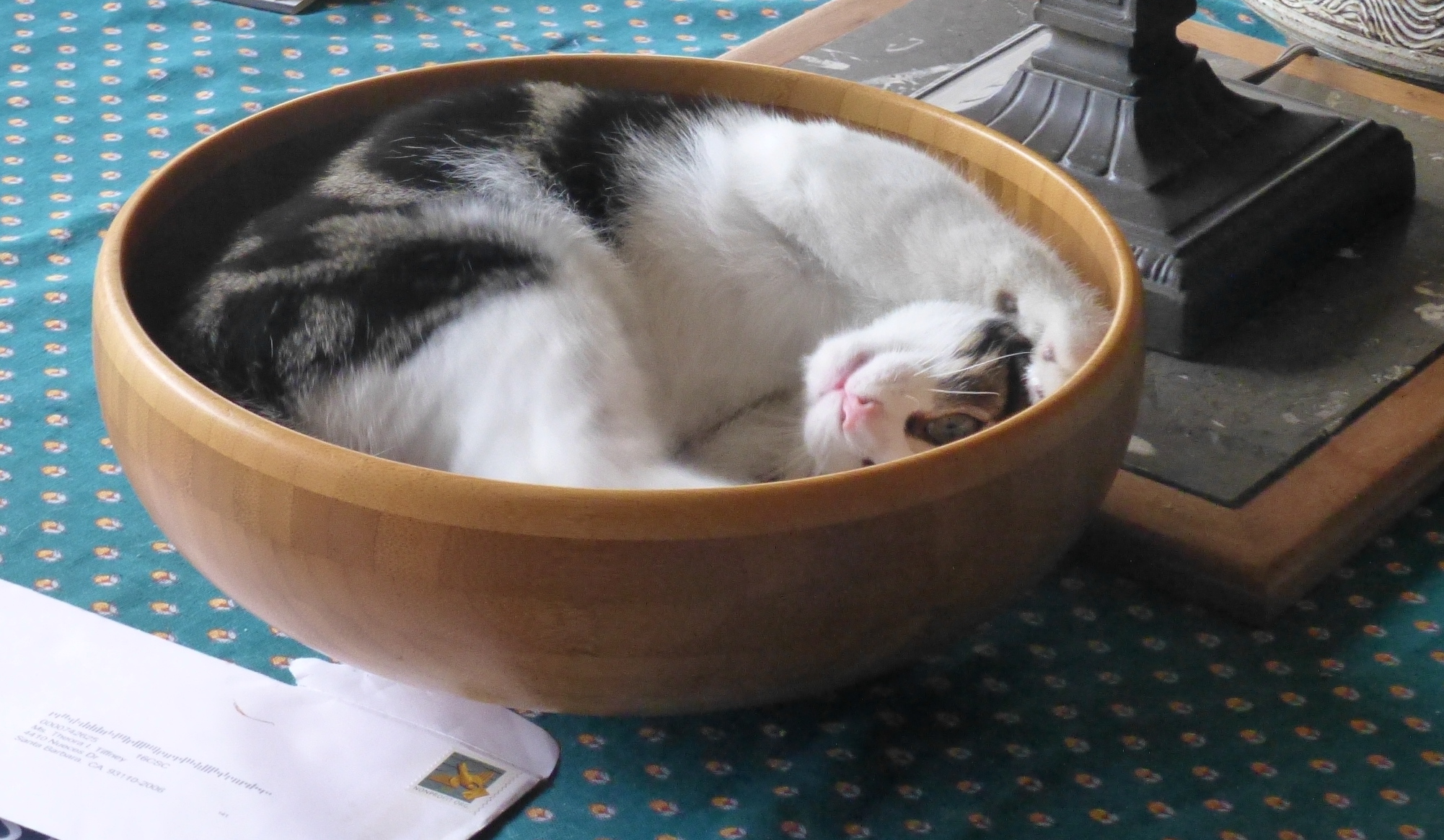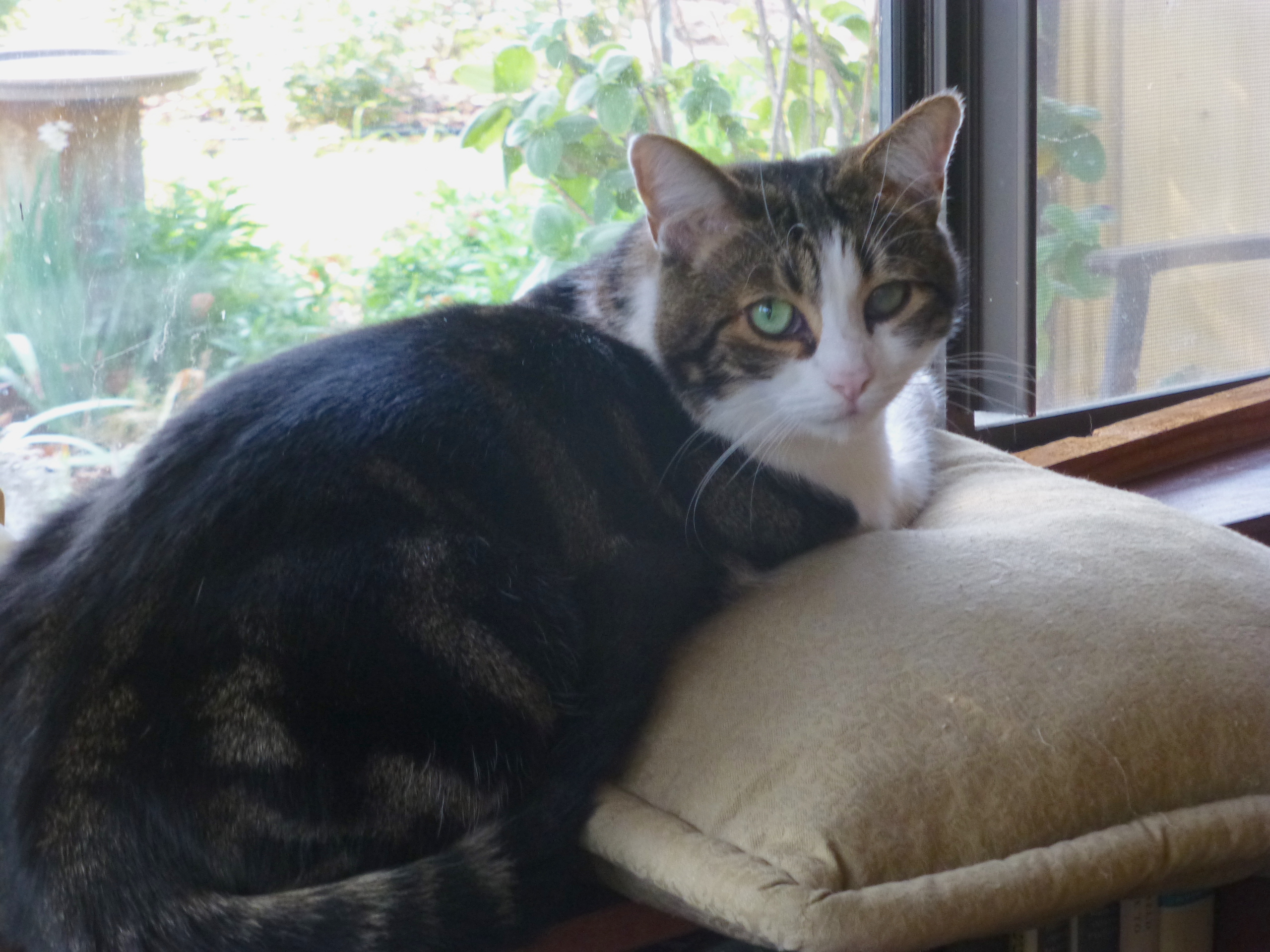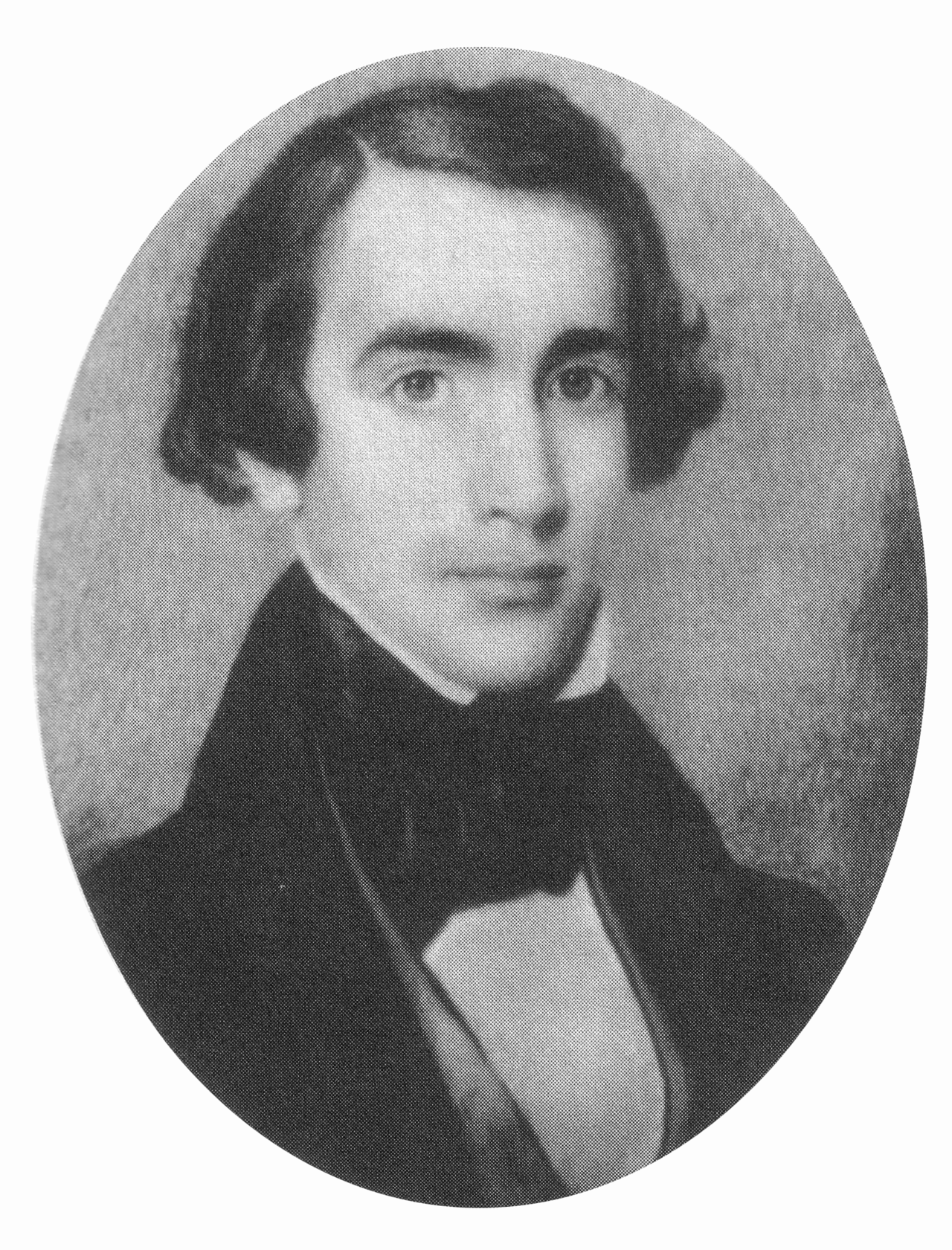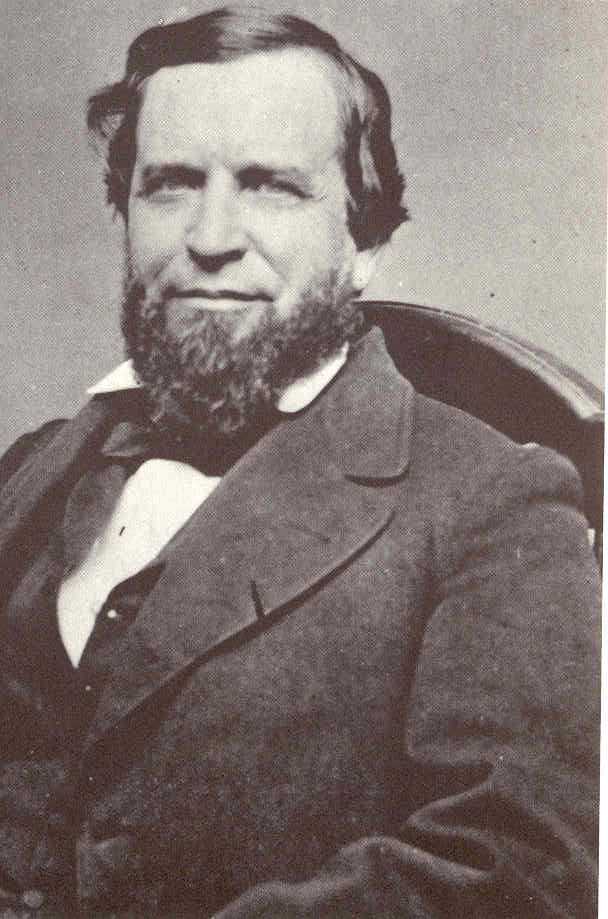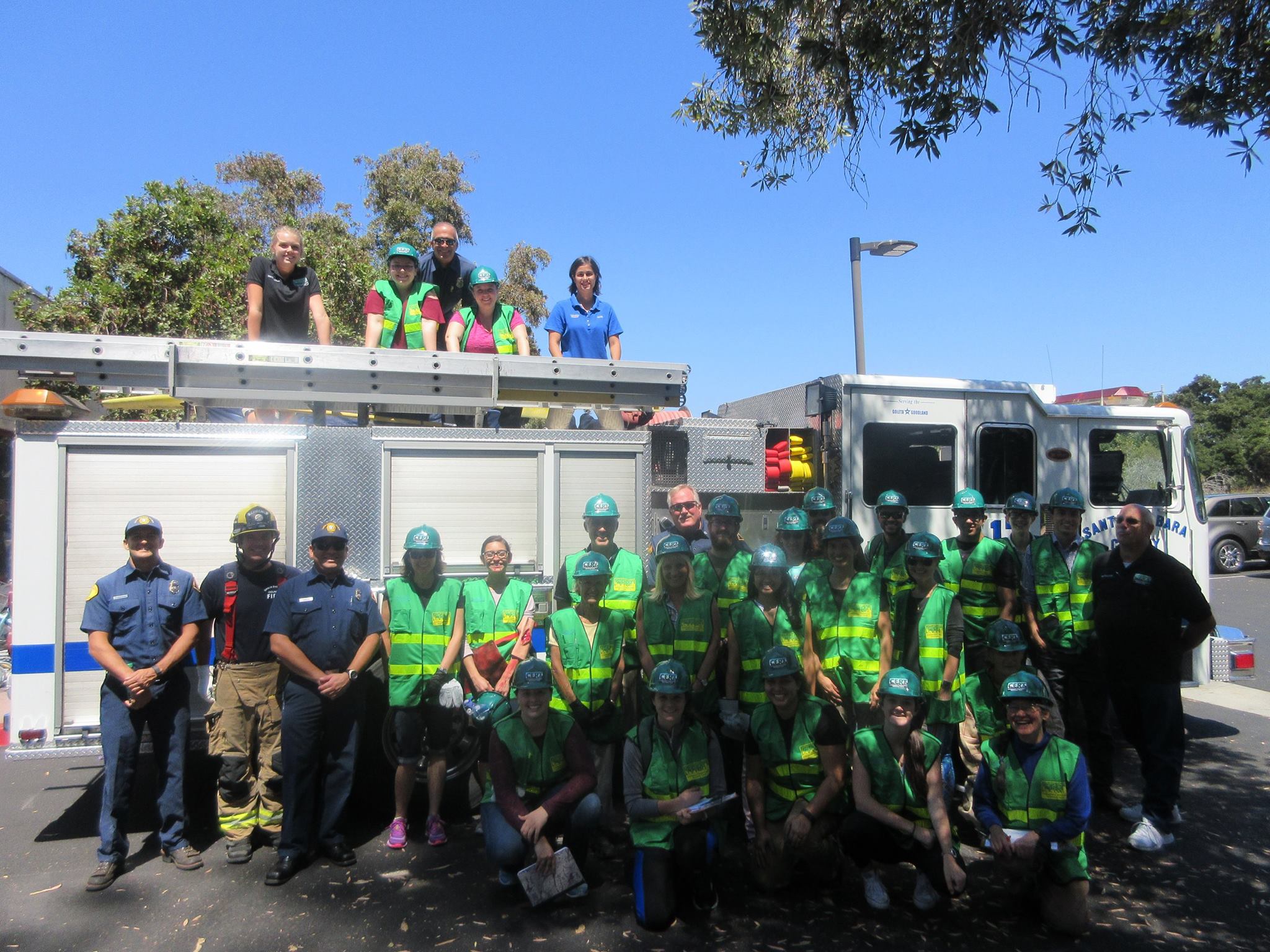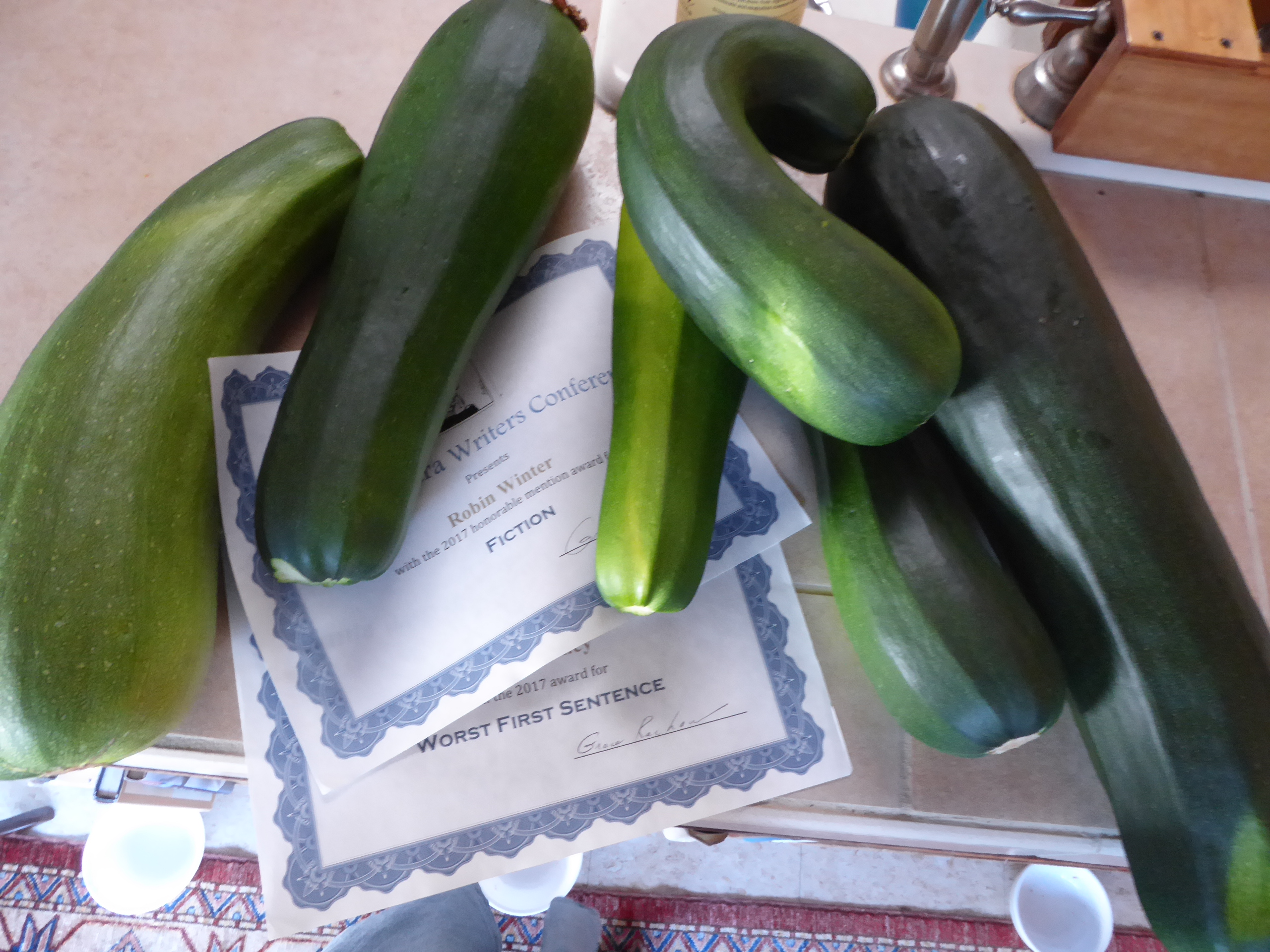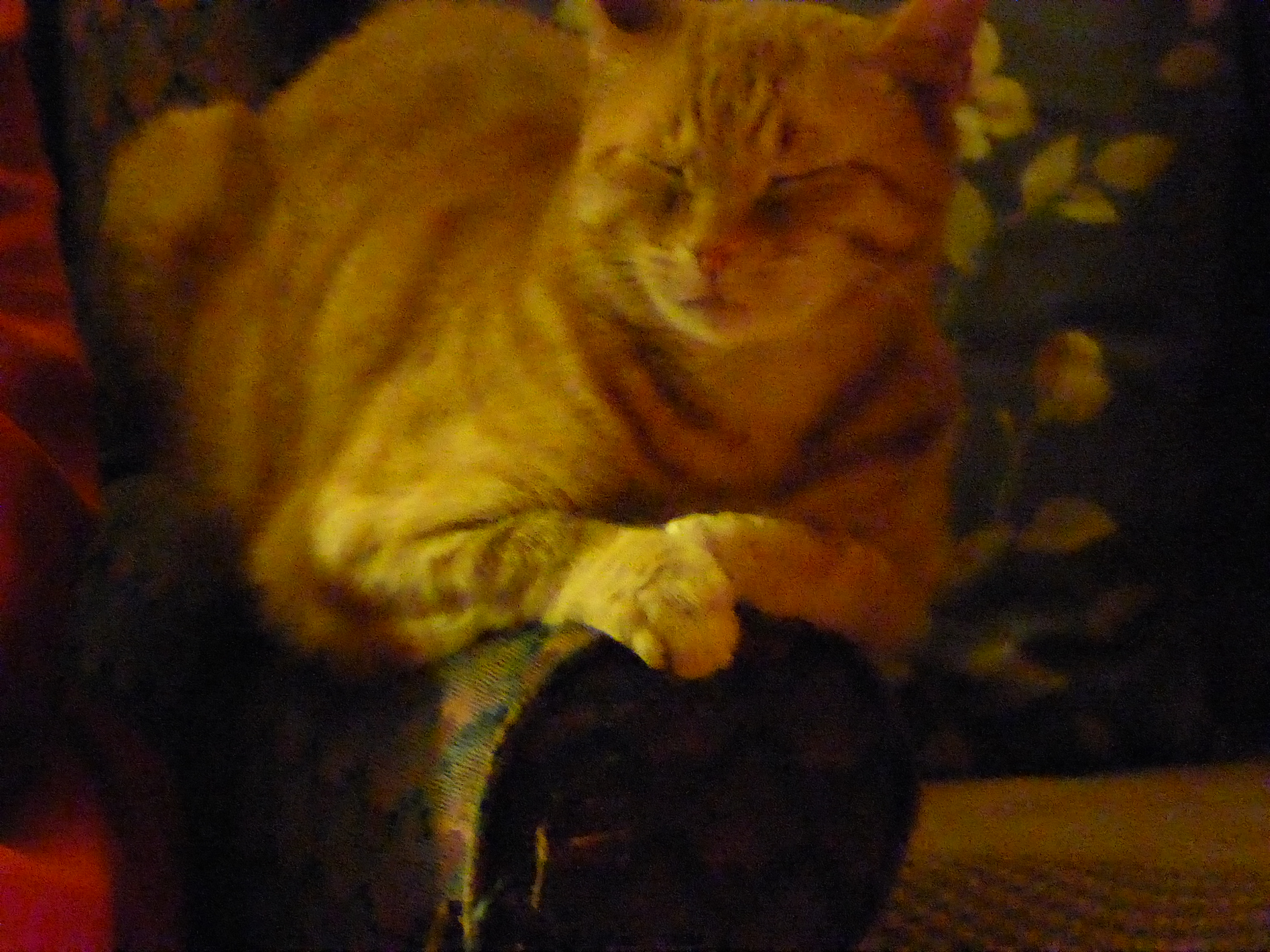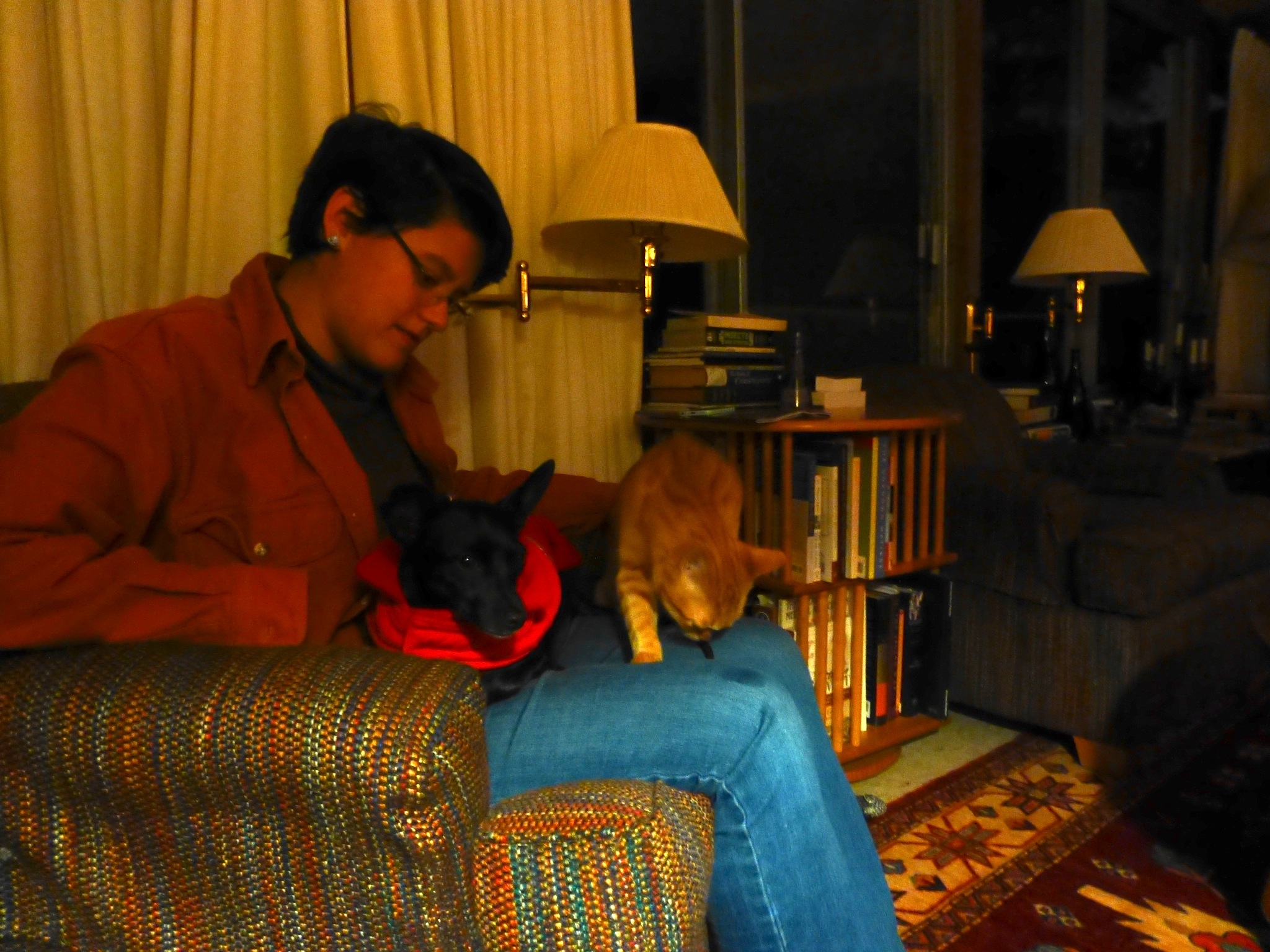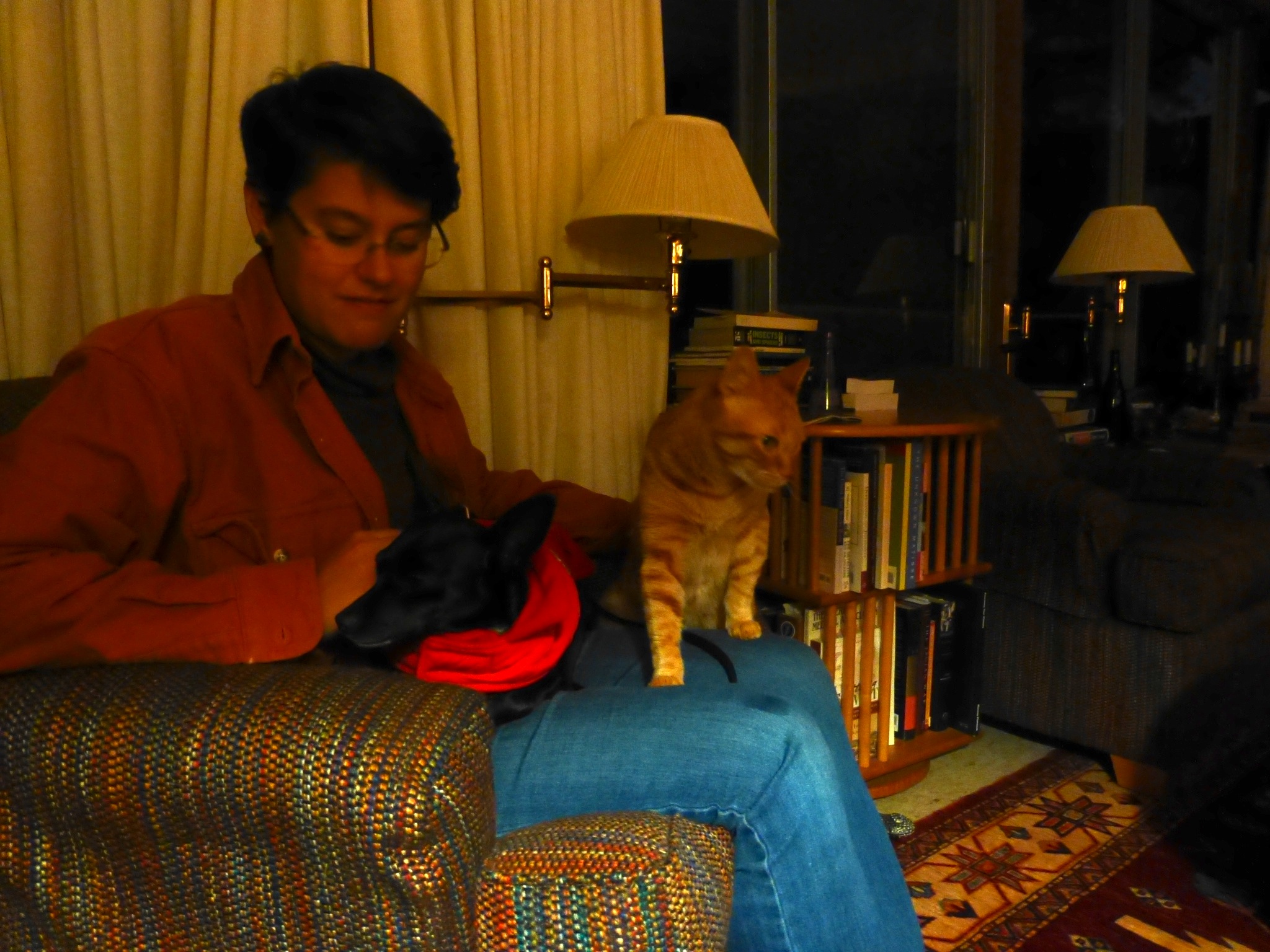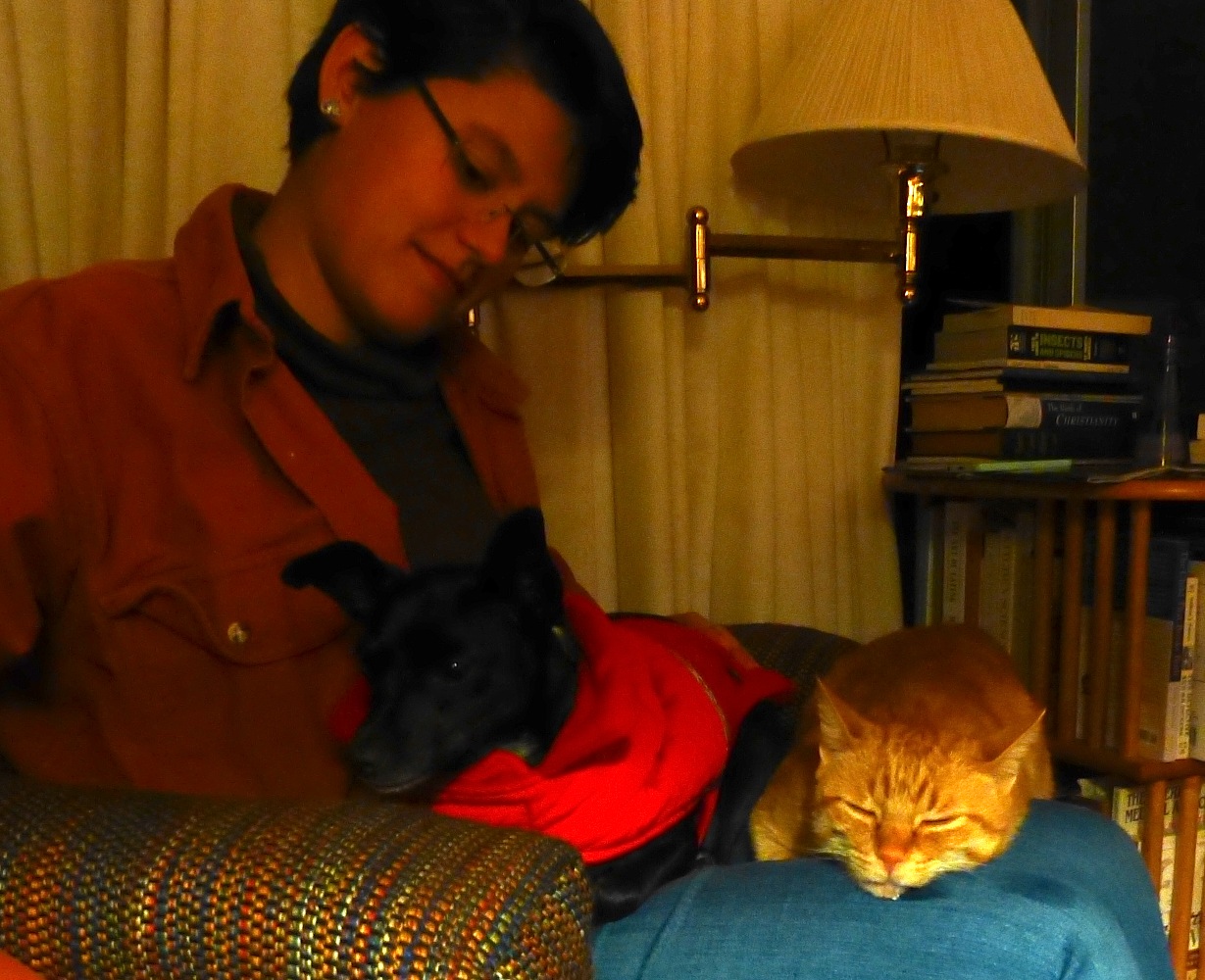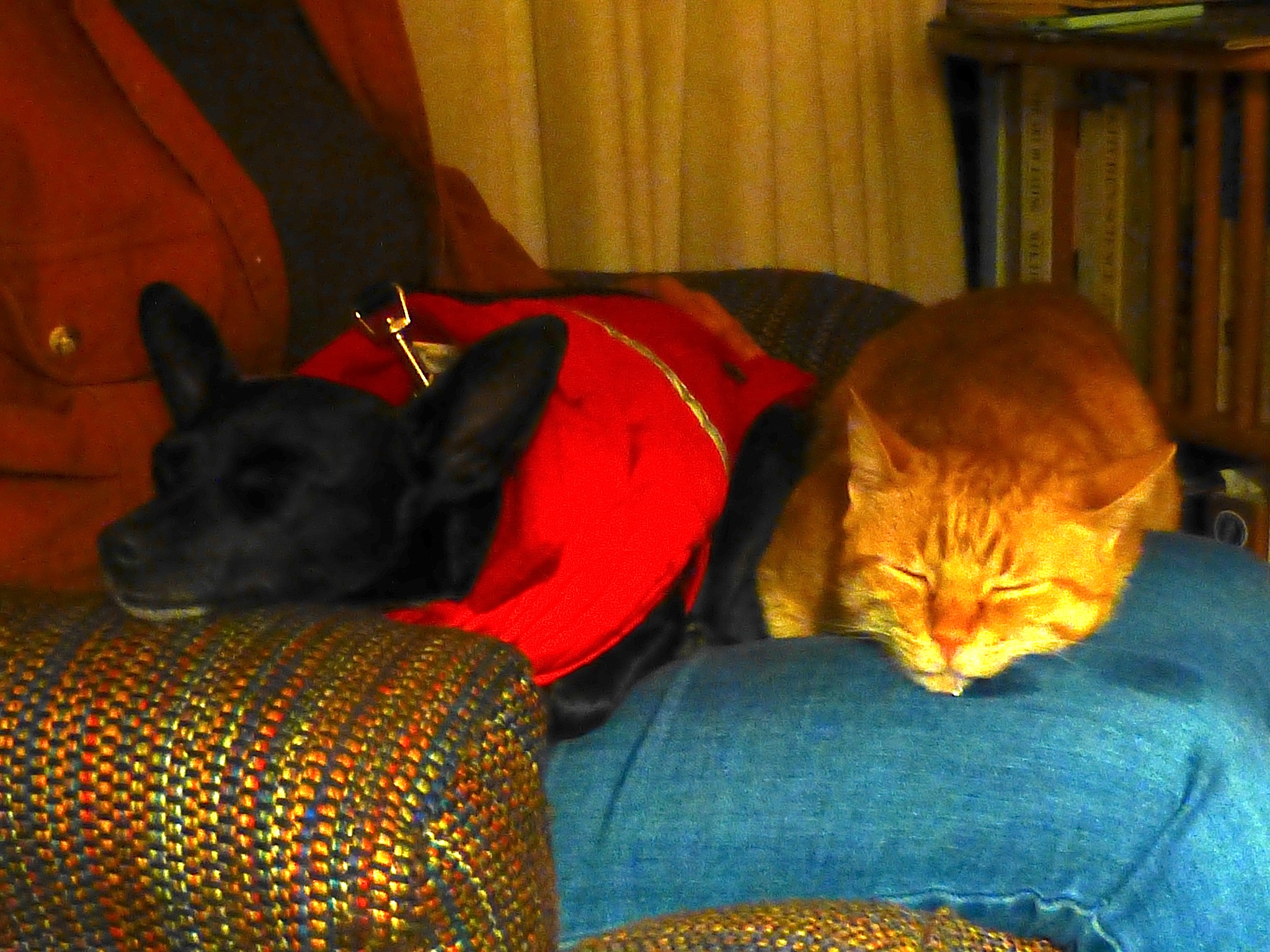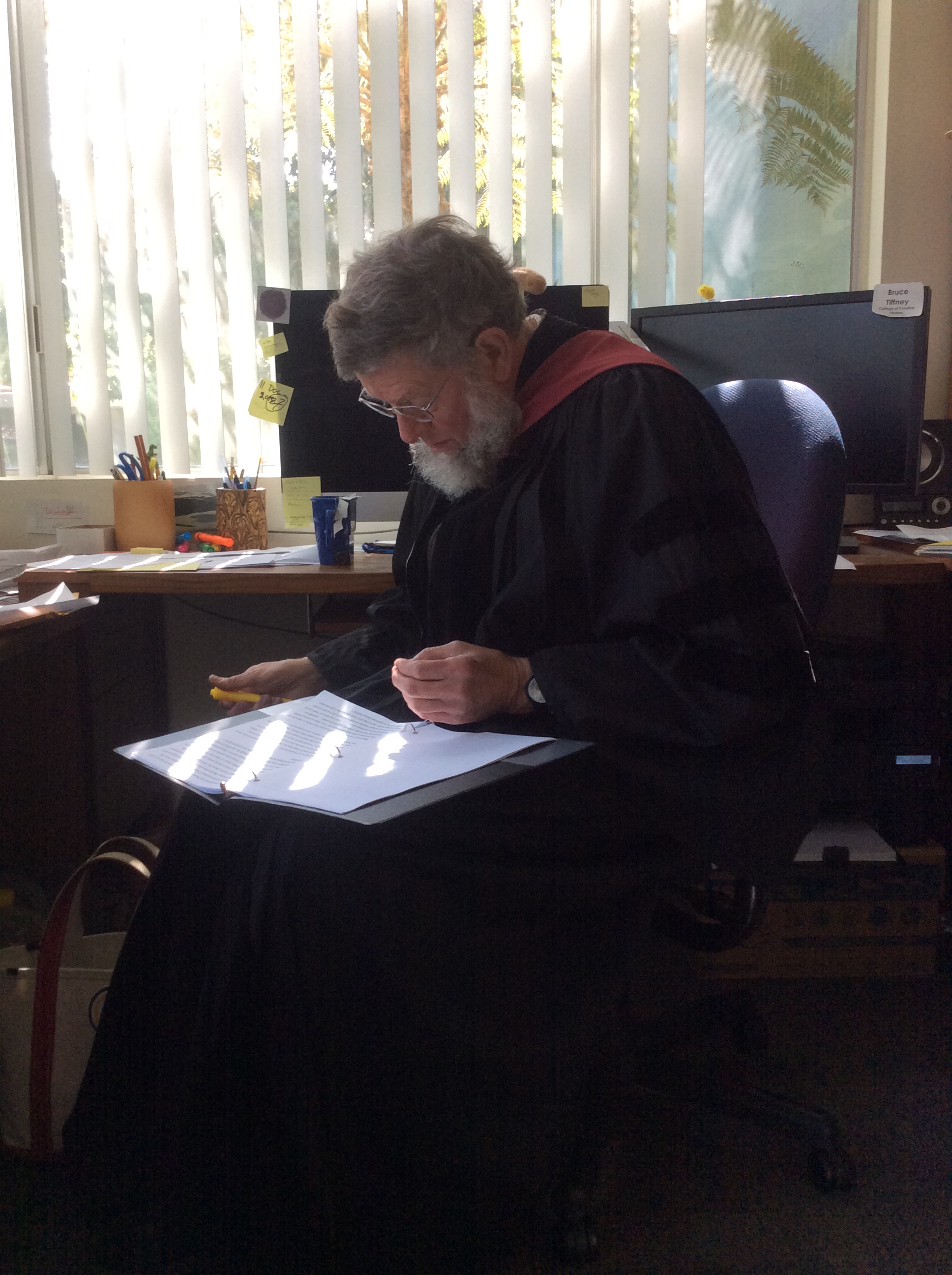
My husband has the opportunity to address our graduating seniors and their families and friends at the beginning of the graduation ceremonies, the first, each year, of such ceremonies at UCSB. The total of UCSB graduates this year will be 6,867. Our College of Creative Studies has a graduating class of 82, so you can see it is a little different. Here I share with you the speech he gave this year.
————————————————————————————————————————–
These days, it’s hard to read the news. A friend of mine posted on Facebook the other day that he needed a drink and an aspirin to do it. and you may imagine the responses he got from all his raucous friends, myself included.
Times like these… Many think they are afraid now. But for you graduates, that’s not fear; that’s your sharpness. That’s your power.
Times have been dark before. Cycles come and go but they aren’t circular, they move through time, never actually repeating, more like a spiral heading in directions that our decisions affect, sometimes slowly, maybe jerkily. This is our time, not a repetition from a history book, and we, the people, write it.
Today we celebrate a moment of triumph for all of you upon this stage. Hard fought, hard won, with times dark and bright mixed in. Indeed, you have chosen a hard path, not a conventional one, and that alone is reason to salute you. I hope there’s no one among you who has not failed. Failure is one of our greatest gifts, to discover that, as Winston Churchill said in his desperate times, his darkest hour “…failure is not fatal: it is the courage to continue that counts.”
But the bitter taste of the rest of that quote is this– “Success is not final…” a note I must sound as we depart from CCS. All of us are changed by the spiral we strain to force in a better direction than our recent past.For this stubborn continued confrontation, we need the courage to continue.
We have a fellowship of CCS students, and I will call all of us students, because a CCS graduate never leaves learning behind… who work as I speak, who have worked, who will work, to defy ignorance, spite, selfishness– in all the myriad ways. One step at a time, one gesture at a time, some by fighting in the pharmaceutical industries to enhance access, some in government seeking better policy, some in laboratories, libraries, or generating code enabling discovery, some writing novels that make us think, articles that challenge our preconceived ideas and inertia, some creating the music that expresses emotion and makes us human, the games that relieve our minds, the art that forces us to perception and passion– all sharing their abilities with a world we cannot doubt is in need. Here at CCS we include this all— the neurodiversity of our College, Xavier’s School for Gifted Youngsters.
In past addresses as Dean I called upon movies to tag our CCS lives to current templates of myth. I went to stories from Dr. Who, Harry Potter, Pacific Rim and others. The Avengers in their reborn cinematic forms. Now the Hero’s Journey has undergone a transformative evolution into so many more iterations. The Expanse, for all you Miller fans, or Sherlock, brought to our time, and Good Omens. And all these toys, games and series, what do they say about us and our imaginations? That stories are the software our mental hardware needs to visualize our ends and our new beginning. That stories are our re-invocation of creation.
Looking at our superheroes, realize that the superheroes idiom first flourished in response to the totalitarian, homophobic, fascist, and racist themes that underwrote the origins of WWII. Go Superheroes! I would like to hope that CCS legitimizes the dreams of heroes and the right to make them real. Imperfect, yes, we are. But inclusive, supportive, family – We are family, like the Avengers– a family by choice. Don’t lose track of that.
Where do you suppose we should go from here, to become our best selves under this darkened sky? In a time of stress, public disloyalty and strife, of threat and domination, praised as though it were righteousness, ….. Can we pass our food bowls on to let a younger weaker companion eat? Can we tend a sick friend, even when he’s dirty and rude and stinks? Can we wait and love, even in absence, being faithful?
Moved by the images of Notre Dame de Paris ablaze, I think of the extraordinary efforts of men and women over the ages and all faiths, lifting such monuments to heaven. How these buildings were erected by the power of human spirit — by rule of thumb, without the engineering we moderns would consider essential. When the edifice fell, or even burned, they moved to build again, and again, over the ages, building upon ruins.
I believe we are at our best when we are building cathedrals, creating an impossible beauty and shared hope to rise against the night and reach for the stars. These belong to us all to address the needs of the starving human spirit, for understanding, for shared aspiration.
Your Notre Dame must be bigger yet.
Now let me ask you to follow me not just to the top of the cathedral, but to leap up and out and beyond, into a wider consideration and more challenging ambition even than that of our ancestors. This is our moment. This is our world. The place we go is the place we belong.
So, look upon this world. After all, as Crowley might remark, it’s the only place with sushi….
We must rebuild, protect, our cathedral, our old cathedral. Earth. In our day we have more knowledge, of engineering, of science, but to achieve this work we need to revive and understand the spirit of the cathedral builders.
Our planet, our only home needs imagination, spirit, builders, visionaries of all disciplines. All kinds of mind and heart who will not be stopped by failure after failure, and defeat after defeat. Meeting, adapting to, and even rebalancing climate change and environmental degradation, is the monument of your age— the creation that we must aspire to, anew. This is your cathedral. Not a thing of stones and mortar and prayer alone, but more — less defined in shape, more difficult and complex, an attainment– to save the world. No less. To save the world.
Cynical retreat into hopelessness is an indulgence we cannot afford as we spiral on. Don’t be discouraged if success is not what you thought, or comes slowly, or even if it does not come. You still have each other, and your efforts will belong to all of us.It is the courage to continue that we ask.
You may think that you’re scared. This isn’t fear. This is your sharpness. This is your power. This is your moment.
——————————————————————————————————-


